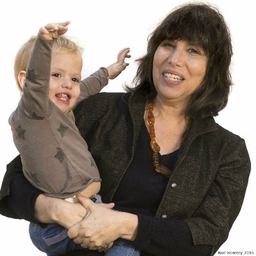
Alison Gopnik
Freelance Writer at Freelance
Cognitive scientist, psychologist, philosopher, author of Scientist in the Crib, Philosophical Baby, The Gardener & The Carpenter, WSJ Mind And Matter columnist
Articles
-
3 weeks ago |
royalsocietypublishing.org | Laura Lewis |Esther Herrmann |Alejandro Sánchez-Amaro |Alison Gopnik
Curiosity is critical to learning and enables innovative behaviour and efficient information gathering [1–8]. Curiosity has deep phylogenetic and developmental roots in primates, and allows an individual to improve prediction, reduce uncertainty and gain increased control on their environment [2–4,9,10].
-
Mar 13, 2025 |
science.org | Lianjie Miao |Nikos Koundouros |Henry Farrell |Alison Gopnik
Information & AuthorsPublished In ScienceVolume 387 | Issue 673914 March 2025Article versionsSubmission historyPublished in print: 14 March 2025PermissionsRequest permissions for this article. AcknowledgmentsAll authors contributed equally to this work. J.E. began a visiting researcher affiliation with Google after this manuscript was submitted.
-
Aug 16, 2024 |
creativitypost.com | Joanne Foster |Eunice Yiu |Eliza Kosoy |Alison Gopnik
“Next-levelling” involves advancing—pushing forward, upward, outward, or onward. It requires effort, and initiative. It’s important at the outset of a new academic year or school term, but it’s equally important as a school year ramps up and gets into full swing. Whether kids’ pursuits have to do with creative endeavors, educational programs, interests (such as sports, art, music, technology, trucks), or something else altogether—there’s always room for growth.
-
Jul 24, 2024 |
oecs.mit.edu | Alison Gopnik
Learning about the causal structure of the world is a fundamental problem for human cognition. Over the past 20 years, cognitive scientists have applied advances in our understanding of causation in philosophy and computer science, particularly within the Causal Bayes Net formalism, to understand human causal learning. The formalism specifies a probabilistic generative model that describes the causal relations between variables.
-
Jul 1, 2024 |
creativitypost.com | Joanne Foster |Eunice Yiu |Eliza Kosoy |Alison Gopnik
Over my 40-plus year career as an academic clinician working with highly able (i.e., gifted and talented; high ability) children and youth, I have observed with keen interest and even fascination the maturing development of the related fields of gifted education, expertise, and talent development. In my opinion, there now are a few critically important, irrefutable facts that those who work with high ability children can agree upon.
Try JournoFinder For Free
Search and contact over 1M+ journalist profiles, browse 100M+ articles, and unlock powerful PR tools.
Start Your 7-Day Free Trial →X (formerly Twitter)
- Followers
- 19K
- Tweets
- 1K
- DMs Open
- No